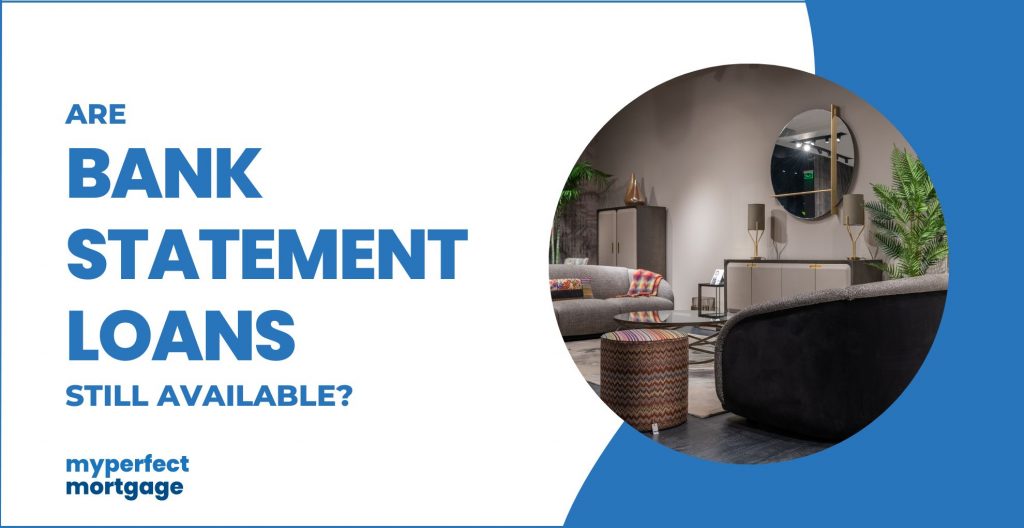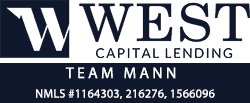Mortgages that can be applied for without tax returns have been around for several years, but are bank statement loans still available today?
The answer is yes. In fact, many lenders big and small offer these loans at competitive terms.
Bank statement mortgages appeal to self-employed individuals struggling to supply traditional income documentation.
These loans are a newer type of mortgage that offers an alternative to the standard income verification process. Here’s how these loans work, what they are, and an answer to the question: Are bank statement loans still available today?
Start your bank statement loan.What’s in this article?
What lenders still offer bank statement loans?
Conventional mortgages are also called qualified mortgages (QM) loans. These loans meet the Consumer Financial Protection Bureau’s (CFPB) standards for safe lending.
But there are people who want to buy a home but have challenges toward meeting the standard requirements for QM loans.
Non-QM lenders
Non-QM lenders cater to borrowers who do not meet the standard requirements for a qualified mortgage loan.
These lenders are willing to take on more risk than traditional lenders. They are also more willing to work with borrowers with lower credit scores, higher debt-to-income ratios, or other unique circumstances.
Non-QM lenders are becoming increasingly popular and provide various loan options, including bank statement loans, asset-based loans, bridge loans, and portfolio loans. Bank statement loans are among the most popular non-QM loan options.
Connect with a non-QM lender.Why is the number of non-QM lenders growing?
Borrowers who cannot provide standard proof of income, such as gig workers, freelancers, and the self-employed, have been a significant proportion of the labor market for a long time. But because of the housing crisis of 2007-2008, the market had been wary of non-QM loans until the Title XIV Mortgage Reform Act was implemented.
This act was good news for borrowers with unique financial situations, like those with a high debt-to-income ratio or who have experienced a recent credit event like bankruptcy.
This flexibility allows many borrowers to obtain a loan that meets their financial needs without having to qualify for a traditional loan.
How do bank statement loans work?
A bank statement mortgage or bank statement loan is an alternative loan option used by qualified borrowers with limited income documentation.
These loans can be a great option for people like self-employed borrowers because it allows them to use their bank deposits to qualify.
The expense ratio
When reviewing your bank statements, the lender will check the housing expense ratio—a percentage determined by taking an applicant’s theoretical new housing expenses and dividing it by their pre-tax income.
This percentage, when combined with the applicant’s overall debt-to-income ratio, are two of the biggest factors for determining if they can manage monthly mortgage payments.
Interest rates for bank statement loans
The main requirements of a bank statement mortgage are that the borrower must provide bank statements from the past 12-24 months, though periods may vary between lenders.
The lender will review the bank statements to assess the borrower’s income and financial stability, which are also one of the main factors for determining the loan rate.
Generally, the higher the income on the bank statements, the lower the loan rate.
On average, bank statement loan interest rates will be higher than traditional loan rates.
Each borrower’s rate will also be based on their down payment amount. Typically, you need at least 20% of the purchase price to qualify for the most favorable loan rates. Lower down payments may be allowed, but they often result in a higher rate.
The borrower’s credit score will also affect their rate. Borrowers with higher credit scores generally qualify for lower loan rates and vice versa.
What did the Dodd-Frank act do that affected bank statement loans?
In response to the housing crisis in the second quarter of 2007, the U.S. government passed The Mortgage Reform & Anti-Predatory Lending Act (or “Mortgage Reform Act”), which was incorporated as Title XIV of the Dodd-Frank Act.
The act implemented a variety of regulations affecting mortgage originations, targeting practices the government believed contributed to the downturn of the real estate market.
The Mortgage Reform Act reflected the commonly held belief that some mortgage brokers contributed to the collapsing market by originating questionable mortgages—many of which did ultimately fail.
One of The Mortgage Reform Act’s main purposes was to address widespread mortgage origination practices like steering incentives and high-risk, non-traditional mortgage arrangements.
“Title XIV [of the Dodd-Frank Act] establishes minimum standards for all mortgage products,” according to Cornell University. Creditors may not approve a home mortgage loan unless they reasonably determine that [borrowers] can repay the loan.
This act meant that mortgage lenders had to implement stricter standards when analyzing the ability of applicants to afford their mortgages—raising the market’s confidence regarding their continuing value and stability.

Bank statement loans must be outrageously expensive, right?
These home loans generally have somewhat higher interest rates and down payment requirements. But there’s an upside to this.
Bank statement loan down payments are just part of the money you’d have to pay back anyway—so there’s no loss there. Besides, borrowers would have to pay interest on the down payment amount—so avoiding having to borrow that amount will save them money in the long run.
As for the higher interest rates? According to a My Perfect Mortgage survey, bank statement loan rates are only about 2% higher than conventional rates. Considering the lender is taking a bigger risk by approving a mortgage without the standard means of evaluating it, most non-QM lenders will offer a quite reasonable interest rate.
Needless to say, shop around.
A borrower’s credit score will also be one of the most significant factors in determining what interest rate they might receive. That’s why improving your credit score as much as possible before starting the home-buying process is a good idea.
Am I likely to be approved?
Like any privately-sold mortgage product, approvals will vary between lenders. Here are the basics on how to give yourself the best chance of approval.
With your loan application, provide the lender with (ideally) two years of bank statements, although they might be satisfied with a shorter period. Deposits and withdrawals should be consistent with your income.
A prospective bank statement loan lender will set a minimum loan-to-value ratio. For example, if a lender has an 85% minimum LTV, a borrower must have a down payment of at least 15% to qualify.
Lenders will also review your credit history and debt-to-income (DTI) ratio. Your credit history should demonstrate a pattern of on-time payments, and your DTI should be (again, ideally for most lenders) below 43% to qualify for a bank statement loan.
Additionally, the lender may require a minimum amount of funds in your bank account to cover closing costs or a few months of mortgage payments.
Finally, the lender will appraise your property to assess its value. The appraisal will determine the maximum loan amount you can receive. Jumbo loan amounts are not always available, depending on the lender.
After all of the above steps have been completed, the lender will make a decision on your loan application. If approved, you will be informed of the loan terms and conditions and can begin the process of securing your bank statement mortgage loan.
A lot depends on the strength and length of self-employment. Someone who just started a business isn’t likely to be approved, but someone with a 2+ year history of earning a decent income has a higher likelihood of approval.
What’s the catch with bank statement loans?
There’s no catch.
Bank statement loans are just a different type of mortgage product. There is little difference between conventional mortgages and bank statement loans—mainly an unconventional method of verifying the applicant’s income.
Banks and other mortgage lenders have realized that tax statements do not always accurately reflect their customers’ incomes, especially with the rise of freelance and self-employed workers.
Everyone who runs their own business is trying to find appropriate deductions for their business to pay less income tax. Lenders soon realized that an official statement of deposits could give a much more accurate picture of a client’s ability to afford mortgage payments.
Learn more about bank statement loans.
Are bank statement loans dangerous?
Because bank statement loans are essentially the same as traditional loans, the risk you assume is the same as with most mortgage products. Monthly payments must be paid, and the lender is still assuming their own risk with a non-QM.
Lenders don’t want the property. Loan interest is an easier way of making money because foreclosures are generally messy and expensive. If they thought they would not be repaid the loan with interest, they would not issue the loan in the first place.
As with any major financial transaction, checking out the lender through government agencies, private agencies (like the Better Business Bureau), and reviews is always a good idea.
Should you get a bank statement loan?
Because of the rise of self-employed or similarly employed Americans, many traditional banks and mortgage brokers are starting to offer bank statement loans.
The reforms brought into effect by Title XIV make this loan product much more attractive for lenders, borrowers, and the overall real estate economy.
And with over 15 million self-employed people in this country, is it any wonder why bank statement loans are becoming more popular than ever?
Are bank statement loans still available? You bet. And they could easily become a business owner’s or freelancer’s best option for buying a home.
Submit your bank statement loan scenario.Our advise is based on experience in the mortgage industry and we are dedicated to helping you achieve your goal of owning a home. We may receive compensation from partner banks when you view mortgage rates listed on our website.








